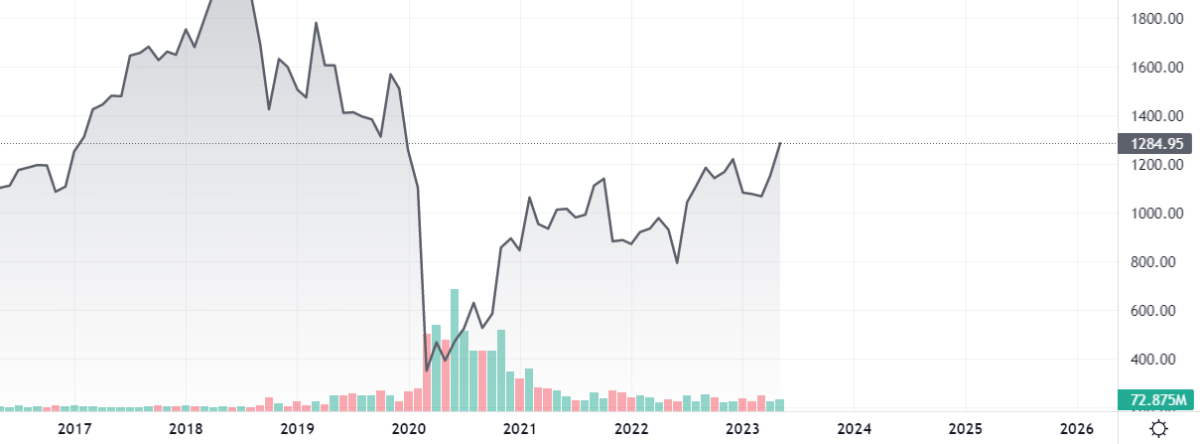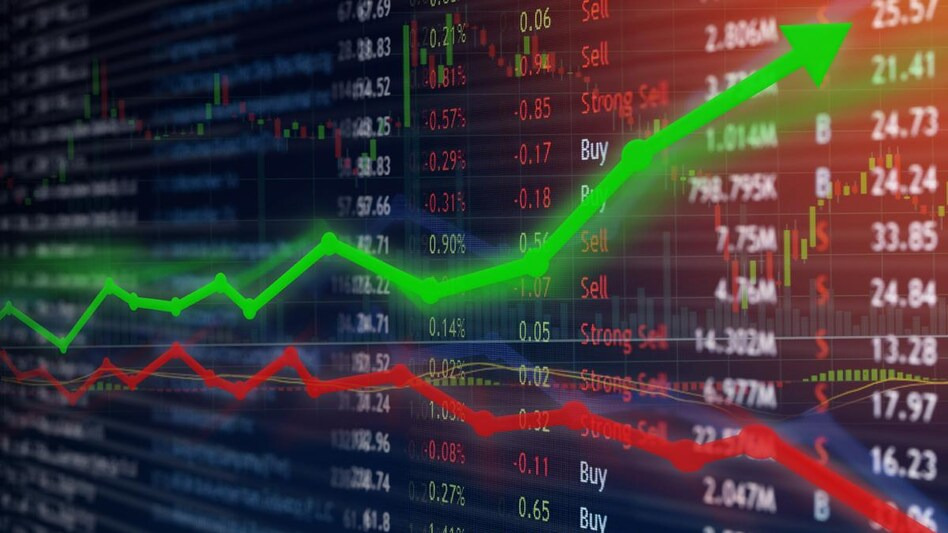As its shares reached a 52-week high of Rs 1,295, IndusInd Bank’s request capitalization surpassed Rs 1 lakh crore, its loftiest position in three years. The bank’s stock has increased by nearly 44 percent during the past 12 months. It’s the sixth bank in India with a valuation of more than Rs 1 lakh crore.
Over the past two years, IndusInd Bank has bettered its return on equity and return on means, and its daily net profit and profit periphery YoY have been steadily rising. IndusInd Bank shares reached a new 52-week high of Rs 1,295 on Monday, marking the first time in three times that the request capitalization of the Nifty counter had surpassed Rs 1 lakh crore.
The stock had preliminarily closed over the Rs 1 lakh crore position in January 2020, and also, as a result of the COVID-led request collapse, it saw its request value drop below Rs 20,889 crore on March 25, 2020, at Rs 319 per share.
Since that time, the price has increased by 300%, demonstrating a tremendous recovery from the epidemic. Shares of IndusInd Bank have increased by nearly 44 percent in the past year. The stock can go up to Rs1.442, according to the normal of brokerage prognostications, which indicates an upside eventuality of over 12 over the following 12 months.

The fifth-largest private bank in India is IndusInd Bank, a new-age private sector bank supported by the Hinduja group. About 26 of all loans are made up of auto loans.
The operation unveiled planning cycle 6(FY23–26) when releasing the results on April 24. In this cycle, they planned for 18–23 YoY loan growth, substantially driven by retail(55–60 chance), and pre-provision operating profit( PPOP) perimeters of 5.25–5.75.
The rate of retail deposit growth( as measured by LCR) will be a major element in driving loan growth, according to Prabhas Illahee judges, who factor in an 18 loan CAGR during the period of FY23 to FY25E. Strong retail company growth will require opening new branches, and we estimate that the cost to income ratio will be on average 45.6 in FY24/25E ( compared to 44.3 in FY23).

Asset quality has been harmonious, and while buffer values are now at 66 bps, the bank would prefer to increase them. With a steal recommendation on the company and a target price of Rs 1,530 per share, the brokerage establishment stated that they estimate RoE to increase from 14.5 to 16.2 percent from FY23 to FY25E.
The brokerage company forecasts that the bus and microfinance institutions( MFI) members showed a modest enhancement and are projected to be sustained in the coming years. Judges at KR Choksey Institutional have given IndusInd Bank a’ “buy” recommendation with a target price of Rs. 1,475 in the forthcoming diggings.
Focus on developing new artificial areas, similar to home loans, to encourage business growth and expand request share. The development of physical distribution channels online and an increase in NIMs, which were fueled by a rise in the proportion of retail loans, including microloans, supported maintaining a high CI rate for many years.
Still, according to judges at ICICI Securities, lower borrowing rates will boost earnings growth and the return rate. RoA will increase to 1.9 during FY24–25E, according to the brokerage establishment, thanks to advanced-than-assiduity credit growth, picky lending with a focus on high-return orders, and lower credit costs.
It maintains its’ “buy” rating for the establishment with a target price of Rs 1,450 per share. Data suggests that several factors might have contributed to the bank’s ability to recover. First out, IndusInd Bank has endured growth in both its return on equity( ROE) and return on assets ( ROA) during the last two times.
Also, the company’s profit periphery and daily net profit have also climbed over time.
The private bank posted a net profit of Rs 2,040 crore for the March quarter, a 50 percent YoY rise. 28 of the 33 judges who examined the bank’s daily earnings held their” buy” or”fat” conditions, while five judges maintained a neutral standing.
According to Bloomberg data. Nine price estimates were increased, while eight were dropped. The 16 remaining judges kept their price estimates for the stock unchanged. Goldman Sachs raised its price target after the Q4 results to Rs 1,522, while Jefferies maintained the status quo at Rs 1550.











